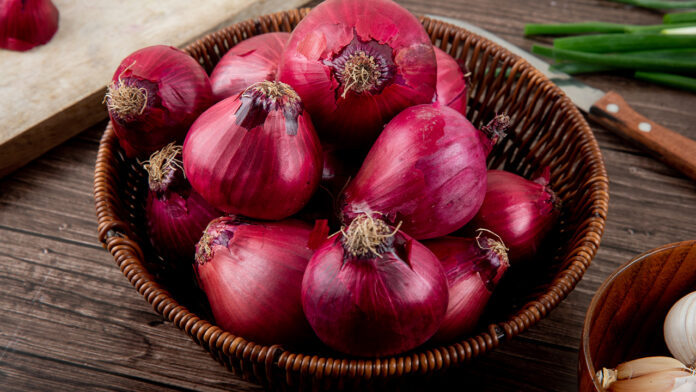Since ancient times, onions have been a common component in kitchens all over the world due to their unique flavor and culinary adaptability. In this piece, we explore this humble vegetable’s fascinating history, nutritional value, and culinary applications.
Historical Roots and Cultural Importance
Early Cultivation: Onions have been cultivated for thousands of years, going all the way back to ancient Egypt, Mesopotamia, and China. They were highly valued for their resilience, capacity to store goods, and therapeutic attributes.
Rituals and Symbolism: In many cultures, onions were symbolic of fertility, protection, and even death. They served as offerings to gods and spirits and were utilized in religious rites and ceremonies.
Advantages of Nutrition and Health Properties
Packed with vitamins, minerals, and antioxidants, onions are a vegetable high in nutrients. They are an excellent complement to a balanced diet since they are especially abundant in dietary fiber, vitamin B6, and vitamin C.
Health Benefits: Research has indicated that onions may offer a number of health advantages, such as lowering blood pressure, increasing digestive health, and lowering the risk of heart disease. Their anti-oxidant properties might possibly aid in preventing some cancer forms.
The versatility and uses of cuisine
Enhancer of Flavor: Onions are highly valued for their unique flavor, which can vary from mild and sweet to harsh and pungent. They are frequently used as a foundation ingredient to provide richness and depth of flavor to sauces, savory foods, soups, and stews.
Culinary Techniques: There are several techniques to prepare and cook onions, such as roasting, caramelizing, pickling, and sautéing. There is no end to the variety of textures and flavors that may be achieved through cooking.
Types of Onions and Their Features
Yellow Onions: Known for its strong flavor and adaptability, yellow onions are the most often grown type. They are frequently used in soups and other foods since the cooking process softens and sweetens their flavor.
Red Onions: Popular in fresh dishes like salads, sandwiches, and salsas, red onions have a milder flavor and a vivid hue. They give food a crunch and a splash of color.
White Onions: Perfect for fresh salsas, relishes, and garnishes, white onions have a sharper flavor and crispier texture than yellow onions. Additionally, Mexican and Latin American cuisine frequently uses them.
Interesting Trivia and Facts
Tears: Sulfur chemicals released when onions are cut can cause tears to well up in the eyes since they irritate them and encourage the production of tears. There are certain methods that can help cut down on tears, such freezing the onion or chopping it under running water.
The largest onion ever recorded in history weighed over 10 pounds and had a circumference of more than 33 inches. It was cultivated in the UK and was officially recognized as a Guinness World Record.
The Onion in Popular Culture
Literature and Folklore: Onions are frequently used as a metaphor for resiliency, forbearance, and wisdom in literature, proverbs, and folklore all around the world. They can be found in Shakespearean plays, folk ballads, and fairy tales.
Culinary Delights: From French onion soup to Indian onion bhaji and Japanese onion tempura, onions are a common ingredient in cuisines all over the world. Their taste and adaptability make them a vital component in many recipes.
Final Thoughts: Honoring the Variety and Taste of Onions
To sum up, onions are much more than just a common vegetable; they are a culinary powerhouse with a long culinary history, many health advantages, and countless culinary applications. Onions provide cuisines from all over the world depth, flavor, and personality whether they are sautéed, roasted, or eaten raw. Let’s appreciate the distinct flavor and fragrance of this cherished vegetable in all of its forms as we investigate and enjoy the many culinary applications for onions.

